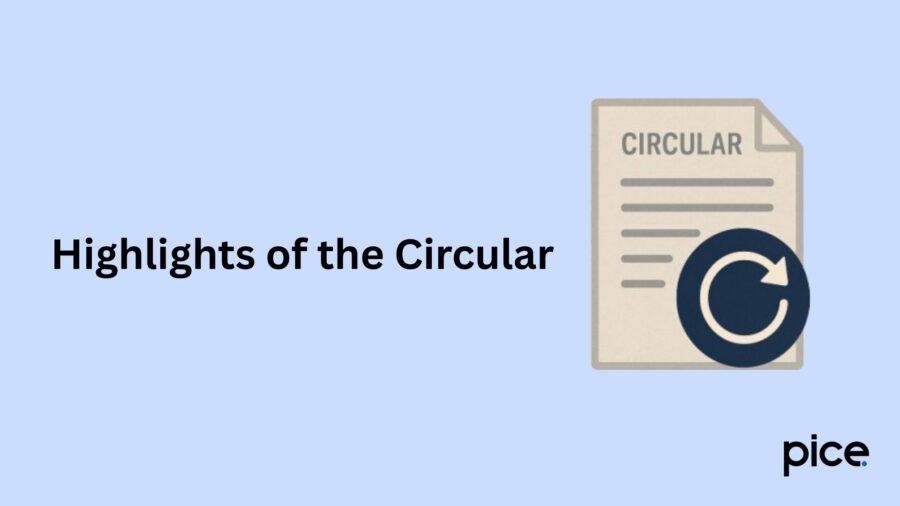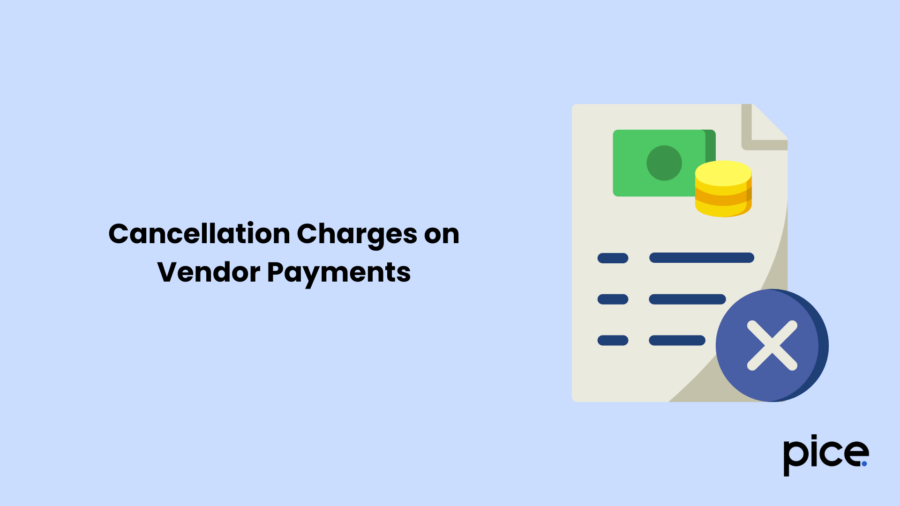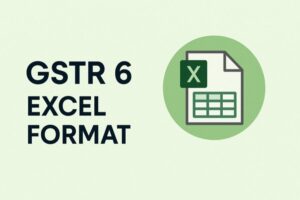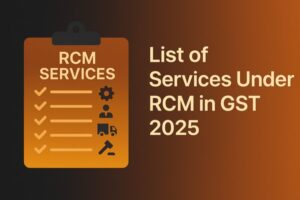CBIC Issues Guidance on Damaged Goods Under GST
- 23 Jul 25
- 7 mins

CBIC Issues Guidance on Damaged Goods Under GST
- Highlights of the Circular
- Liquidated Damages
- Compensation for Cancellation of Coal Blocks
- Fines or Penalties for Dishonoured Checks
- Levy of Penalty for a Breach of Tax Payment
- Forfeiture of Salary, or Payment of Bond Amount, Where an Employee Leaves Employment Before the Minimum Agreed Period
- Late Payment Fees or Surcharge
- Cancellation Charges on Vendor Payments
- Conclusion
Key Takeaways
- Liquidated damages for breach of contract are not taxable under GST.
- Cheque bounce penalties are deterrents and fall outside GST scope.
- Bond forfeitures from employees are not considered a supply under GST.
- Cancellation charges are taxable at the same rate as the original service.
- Late payment interest or surcharge is ancillary and attracts GST.
In a significant move to clarify the Goods and Services Tax (GST) implications on various financial transactions, liquidated damages, late payment surcharges, cancellation fees, and more, the Central Board of Indirect Taxes and Customs (CBIC) issued Circular No. 178/10/2022-GST on August 3, 2022.
This circular addresses the taxability of liquidated damages, compensation, penalties, and other related charges arising from breaches of contract or statutory obligations. The clarifications aim to resolve ambiguities and reduce litigation by delineating which payments constitute consideration for a supply under GST law.
Highlights of the Circular

The circular 178/10/2022-GST states that:
- Agreements under contract, whether expressed or implied, entail promising to do something, not doing something, or enduring a condition.
- That agreement has to be a distinct arrangement, either in the form of a separate contract or within a more extensive one.
- Mere payment of money does not necessarily imply an obligation to provide something, refrain from a service, or tolerate an event. Instead, there must be an independent consideration for a transfer to be deemed a supply.
- Unless a payment has been settled under a given arrangement to perform or tolerate an act, a transfer will not be considered. Similarly, these activities will not be counted as supplies.
Considering the principles above, the circular explains how various common transactions are taxed throughout India.
Liquidated Damages
Liquidated actual damages are a predetermined figure that is intended to compensate for losses due to breach of a contract, an occurrence in contrast to the contractual desired performance.
Such payments, passing from the breaching to the aggrieved party, are not payment for a supply and therefore outside the purview of Goods and Services Tax. A new circular explains that compensation for losses resulting from breach of contract is not a flow of money for a distinct activity but a result evolving during the execution of the contract.
Compensation for Cancellation of Coal Blocks
After the annulment of the coal mine allocations by the Supreme Court, compensation was awarded to the affected principal supply providers as directed by the court. The compensation was to allow their transfer of land rights to the new successful bidders. Of significance is the fact that no consensus occurred between the original allottees and the government in this regard.
A later clarification mentioned that the previous allottees had not rendered any service to the government in accepting the cancellation. Thus, the compensation was provided for the cancelled supply of coal as ordered by the Supreme Court and was not considered taxable under the bracket of damaged goods under GST.
Fines or Penalties for Dishonoured Checks

The circular states that fines from suppliers or banks for dishonoured checks serve as deterrents for the given situation or act.
Thus, the penalties linked with dishonoured checks will not be considered for a particular input service. Also, it will not be a taxable supply meant for GST purposes.
Levy of Penalty for a Breach of Tax Payment
Penalties or fines imposed for the breach of business compliances cannot be regarded as fees paid by governmental or local authorities in return for permission to commit the offence. Most importantly, there is no contract between the governing agency and the offender entitling a breach in exchange for the payment of a penalty. Accordingly, the circular explains that GST liability not cover such penalties.
Forfeiture of Salary, or Payment of Bond Amount, Where an Employee Leaves Employment Before the Minimum Agreed Period
Applicable provisions for recovery of salary or the forfeit of a bond amount are typically included in employment contracts when an employee leaves before the minimum period of employment.
A circular explains that all amounts recovered by the employer in such cases represent penalties aimed at discouraging other employees from leaving early, and these recovered amounts are therefore not chargeable to GST.
Late Payment Fees or Surcharge
The tradition of suppliers accepting delayed payments for finished products with extra interest, charges, or penalties is generally an ancillary supply of the primary transaction. Regulatory advice explains that even when defined as allowing late payment, it is a subsidiary supply inherently connected with the principal and must be treated in the same manner to violation of law.
Cancellation Charges on Vendor Payments

Including applicable rates for cancellation charges against a supply of service is viewed as part of the main service itself. The main reason for incorporating such charges into the main supply is that the supplier has to bear costs while making arrangements for the desired supply.
As an example, GST on the cancellation fees for railway tickets will be charged at the same percentage as that applied to the relevant class of journey. This amounts to a 5% GST for first-class or air-conditioned travel, while other classes of travel have no GST.
Conclusion
Certain complex scenarios can be noted in the interpretation of the scope of services included under para 5(e) of Schedule II of the CGST Act. As a regular taxpayer, it is crucial to realise how taxation works for damaged goods under GST so that you do not have to tolerate a loss or drastic act.
The CBIC's Circular No. 178/10/2022-GST and subsequent clarifications play a pivotal role in delineating the boundaries of GST applicability on various compensatory and penal charges.
By distinguishing between payments that constitute consideration for a supply and those that are merely compensatory, the CBIC provides clarity that aids in compliance and reduces litigation. Stakeholders are encouraged to align their practices with the clarifications stated on the unified portal to ensure adherence to GST laws.
💡If you want to streamline your invoices and make payments via credit or debit card or UPI, consider using the PICE App. Explore the PICE App today and take your business to new heights.
 By
By 
















